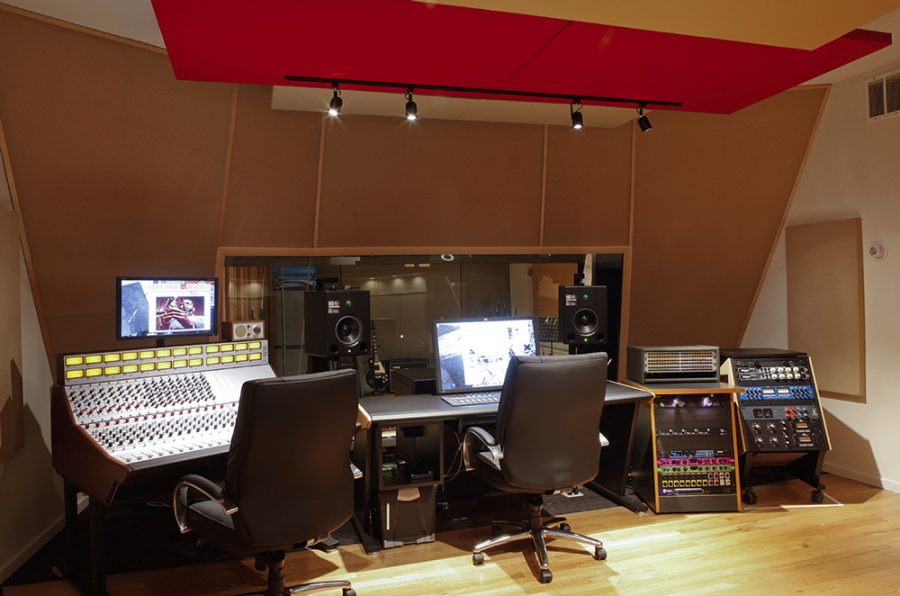Two Music Schools, a Million Paths
Studio 21 North includes both a Live Room and a Control Room, allowing students to apply the skills they learned in the Clive Davis Institute for Recorded Music.
October 17, 2016
NYU boasts two of the top 12 leading music business programs in the country: Steinhardt’s music business major and Tisch’s Clive Davis Institute for Recorded Music. Last week, both made Billboard’s “Twelve Elite Music Business Schools Shaping the Industry’s Future” list, but even though the two programs both focus on the music industry, students gain significantly different educations from the two schools.
Steinhardt freshman Jack Hanson said Steinhardt’s Bachelor of Music program helps students gain a broad perspective of the music business and lets them train in music theory, while Clive Davis prepares students to work any job in the music industry. Hanson believes that due to the differences between the two schools, there is a great amount of mutual respect between them.
“Honestly, I have not one bad thing to say [about Clive Davis], because Clive Davis himself is one of the greatest luminaries in music,” Hanson said. “I know people who are in the Clive Davis Institute of Recorded Music, and they’re so dedicated to their craft, and they’re so willing to learn more about music and recorded music and production.”
Hanson said he thought about applying to Clive Davis at one point but chose Steinhardt over Clive Davis because he wanted to pursue the music theory aspect of music business and wanted a bachelor of music degree.
Tisch junior Geena Kloeppel is a student of the Clive Davis Institute, and she said that the school sets itself apart with an intensive focus on entrepreneurship and that the institute aims to help students become 100 percent employable after leaving it.
“We receive extensive training in performance, songwriting, production, engineering, management, journalism and emergent media,” Kloeppel said. “It’s great to see that NYU is competitive in the field of music business with not just one, but two programs.”
Kloeppel said that although there were attempts to mix the students in the two schools, Clive Davis does not have very much to do with Steinhardt because of the close-knit nature of Clive Davis and how time-consuming the program is.
“75 percent of the kids are actually musicians,” Hanson said. “People have gone on to work for labels like Universal, Sony — things like that — and people have also gone on to be functioning, working musicians in this industry.”
However, Tisch junior Asia Smulders transferred to NYU from a different university and said that she specifically chose the Clive Davis Institute over Steinhardt, because she wanted to learn more about the music technology side of recorded music.
“I wanted to also continue with producing and sound engineering, which is more of the creative process of music, helping put together an album,” Smulders said. “From the vibe I got, I don’t think Steinhardt offers that.”
But through these distinct differences, Hanson hopes the experiences Steinhardt and Tisch students gain will allow them to combine forces in the
music industry.
“I don’t really think a rivalry exists, because I have a friend who’s in Clive Davis, and I just think he’s genius,” Hanson said. “I look at it as us [Clive Davis and Steinhardt students] being collaborators in the business, hopefully one day.”
A version of this article appeared in the Monday, Oct. 17 print edition. Email Natasha Roy at [email protected].


























































































































































